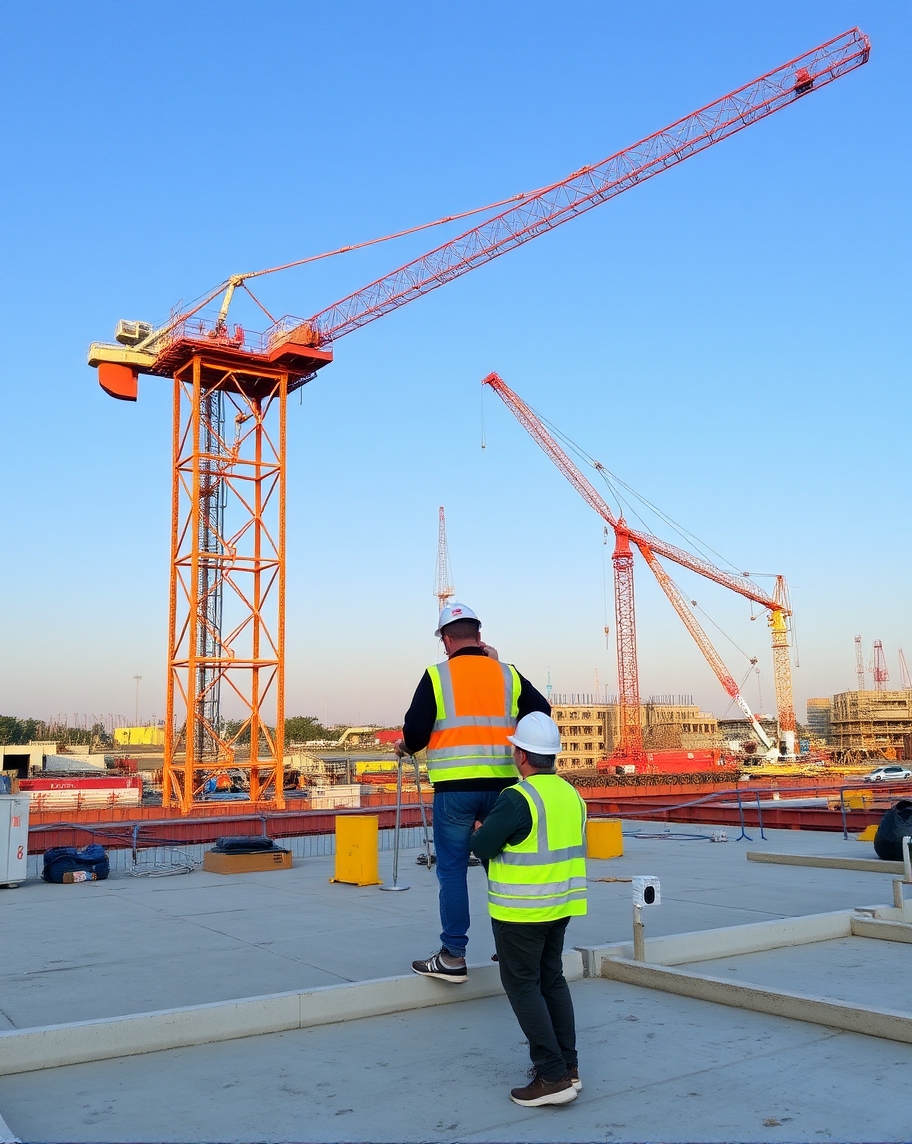Civil Engineering Consultancy: Everything You Need to Know

Civil engineering consultancy plays a crucial role in shaping the infrastructure that supports modern life. From bridges and highways to residential developments and water systems, these consultancies provide the technical expertise needed to design, plan, and manage projects that drive growth and innovation. Whether you’re a developer seeking support for a construction project or a public agency needing guidance on urban planning, civil engineering consultants offer tailored solutions to ensure project success.
This comprehensive guide explores what civil engineering consultancy is, the services it offers, its importance, and how to choose the right consultancy for your needs.
What is Civil Engineering Consultancy?
Civil engineering consultancy refers to the professional services provided by civil engineers and technical experts who assist clients in the design, planning, and execution of construction and infrastructure projects. These consultancies act as problem solvers, offering specialized knowledge to tackle challenges related to land development, structural integrity, environmental compliance, and more.
Key Roles of Civil Engineering Consultancies:
- Design and Planning: Creating blueprints and layouts for projects.
- Feasibility Studies: Assessing the viability of proposed projects.
- Project Management: Overseeing construction timelines, budgets, and quality.
- Regulatory Compliance: Ensuring projects adhere to local, state, and federal laws.
- Sustainability: Developing eco-friendly and resource-efficient solutions.
Services Offered by Civil Engineering Consultancies
Civil engineering consultancies cover a broad spectrum of services, each tailored to meet specific project needs. Here are some of the core offerings:
1. Site Assessment and Feasibility Studies
Before a project begins, consultancies evaluate the site to determine its suitability. They assess factors like soil stability, environmental impact, and zoning regulations to ensure the project is feasible and safe.
2. Structural Design
Structural integrity is critical for any construction project. Civil engineers design frameworks that can withstand forces such as wind, earthquakes, and heavy loads, ensuring safety and durability.
3. Transportation Planning
For projects involving roads, bridges, and highways, consultancies provide designs that optimize traffic flow, enhance connectivity, and improve safety. This includes everything from route alignment to material selection.
4. Water Resource Management
Water is a vital resource, and civil engineering consultancies help manage it effectively. Services include designing drainage systems, flood control measures, water treatment plants, and irrigation systems.
5. Environmental Impact Assessments
To minimize ecological disruption, consultancies conduct environmental studies and develop strategies for sustainable construction. They address issues like waste management, air quality, and ecosystem preservation.
6. Urban and Land Development
For residential and commercial developments, consultancies handle tasks like land surveying, utility planning, and zoning compliance. They help create livable and efficient communities.
7. Project Management and Supervision
From start to finish, civil engineering consultancies manage every aspect of the project, ensuring it stays on schedule, within budget, and adheres to safety standards.
8. Geotechnical Engineering
Geotechnical assessments analyze soil, rock, and groundwater conditions to inform foundation design and construction methods. This service is critical for preventing structural failures.
Importance of Civil Engineering Consultancy
Civil engineering consultancy is vital for the success of construction and infrastructure projects. Here’s why:
1. Expertise and Innovation
Consultants bring specialized knowledge and cutting-edge technology to the table, ensuring innovative solutions for complex problems.
2. Cost Efficiency
Proper planning and design reduce costly errors and delays, saving clients money in the long run.
3. Regulatory Compliance
Civil engineering consultants ensure projects meet all regulatory requirements, avoiding legal issues and fines.
4. Sustainability
With a focus on eco-friendly designs, consultancies help reduce environmental impact while promoting resource efficiency.
5. Risk Mitigation
Through feasibility studies and detailed planning, consultants identify and address potential risks, ensuring safer and more reliable outcomes.
Industries that Rely on Civil Engineering Consultancy
Civil engineering consultancy serves a wide range of industries, including:
1. Construction
From residential developments to commercial buildings, consultancies assist in designing and constructing safe, functional structures.
2. Transportation
Highways, railways, airports, and ports rely heavily on civil engineering expertise for planning and execution.
3. Energy and Utilities
Consultancies design infrastructure for power plants, pipelines, and renewable energy projects like wind and solar farms.
4. Water and Waste Management
Projects like sewage treatment plants, desalination facilities, and stormwater systems are guided by civil engineers.
5. Urban Development
Civil engineering consultancies play a key role in city planning, ensuring balanced growth and effective use of resources.
How to Choose the Right Civil Engineering Consultancy
Selecting the right consultancy can make or break a project. Here are factors to consider:
1. Experience and Expertise
Look for a consultancy with a proven track record in your specific industry or project type. Check their portfolio and references to evaluate their expertise.
2. Certifications and Licenses
Ensure the consultancy holds the necessary certifications and employs licensed engineers. This guarantees compliance with industry standards and regulations.
3. Range of Services
Choose a consultancy that offers comprehensive services, from initial assessments to project completion. This streamlines communication and ensures consistency.
4. Technological Capabilities
A firm that uses advanced tools like CAD (Computer-Aided Design) software, GIS (Geographic Information Systems), and BIM (Building Information Modeling) can deliver more precise and efficient solutions.
5. Communication and Collaboration
Effective communication is key to project success. Choose a consultancy that values collaboration and keeps you informed at every stage.
6. Budget and Timeline
Discuss costs and timelines upfront to ensure the consultancy can meet your expectations without compromising quality.
7. Reputation and Reviews
Research online reviews and testimonials to gauge the consultancy’s reputation. Positive feedback is a good indicator of reliability and professionalism.
Challenges in Civil Engineering Consultancy
Like any industry, civil engineering consultancy faces its own set of challenges:
1. Environmental Concerns
Balancing development with environmental preservation is a constant challenge. Consultants must develop innovative solutions to minimize ecological impact.
2. Technological Advancements
Staying updated with the latest technology requires continuous investment and training, which can be resource-intensive.
3. Regulatory Changes
Frequent changes in laws and regulations require consultancies to remain agile and informed to ensure compliance.
4. Client Expectations
Meeting tight deadlines and budgets while maintaining quality can be demanding, especially for large-scale projects.
Future Trends in Civil Engineering Consultancy
The civil engineering consultancy industry is evolving rapidly, with several trends shaping its future:
1. Sustainable Design
Green building practices and sustainable infrastructure are becoming the norm, driven by environmental awareness and regulations.
2. Smart Cities
The integration of IoT (Internet of Things) and AI (Artificial Intelligence) in urban planning is creating smarter, more efficient cities.
3. Automation and AI
Automation tools are streamlining repetitive tasks, while AI helps in predictive modeling and risk assessment.
4. Resilience Planning
With climate change increasing the frequency of natural disasters, consultants are focusing on designing resilient infrastructure that can withstand extreme conditions.
Conclusion
Civil engineering consultancy is at the heart of modern infrastructure development, offering the expertise and innovation needed to tackle complex challenges. Whether you’re developing a residential community, constructing a highway, or managing water resources, the right consultancy ensures your project is safe, sustainable, and successful.
By understanding the services, importance, and selection criteria outlined in this guide, you’ll be well-equipped to choose a civil engineering consultancy that meets your needs and delivers exceptional results. With their support, your vision can become a reality—efficiently, effectively, and responsibly.









